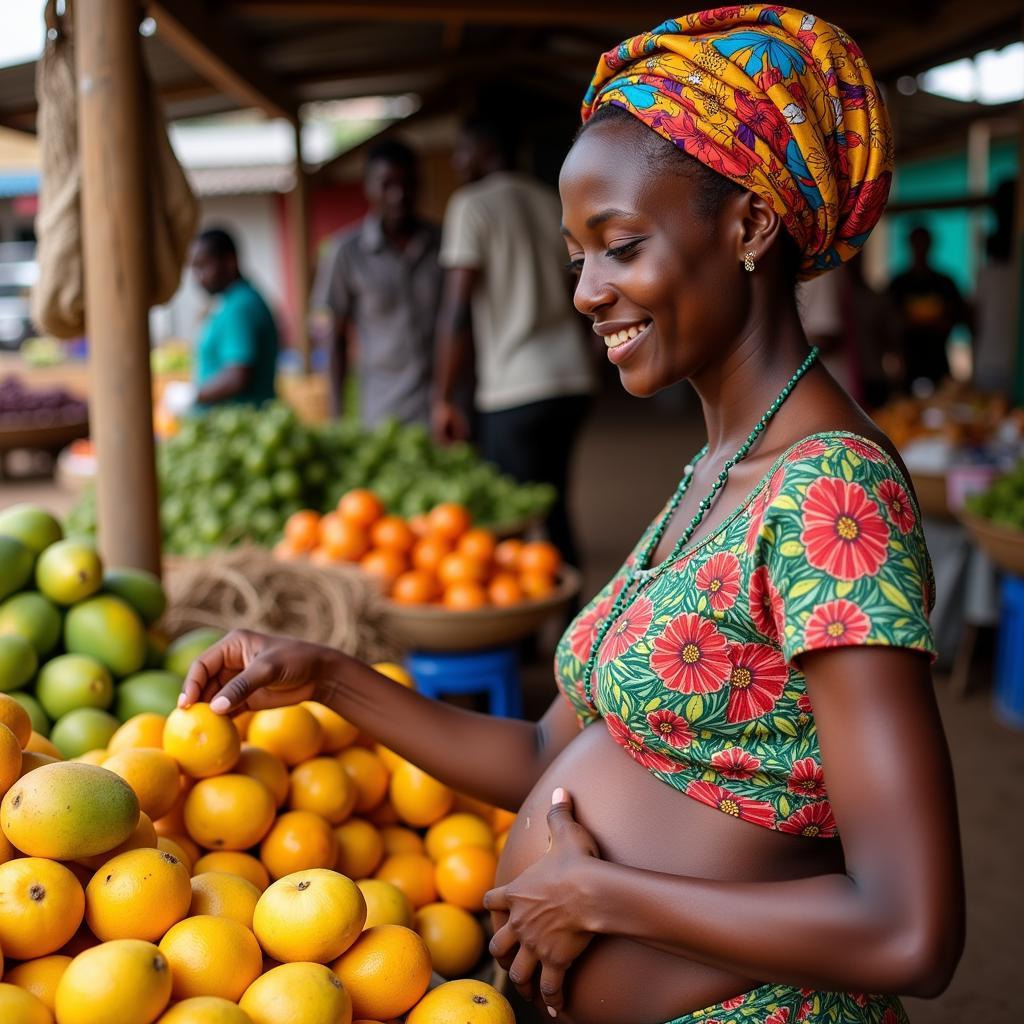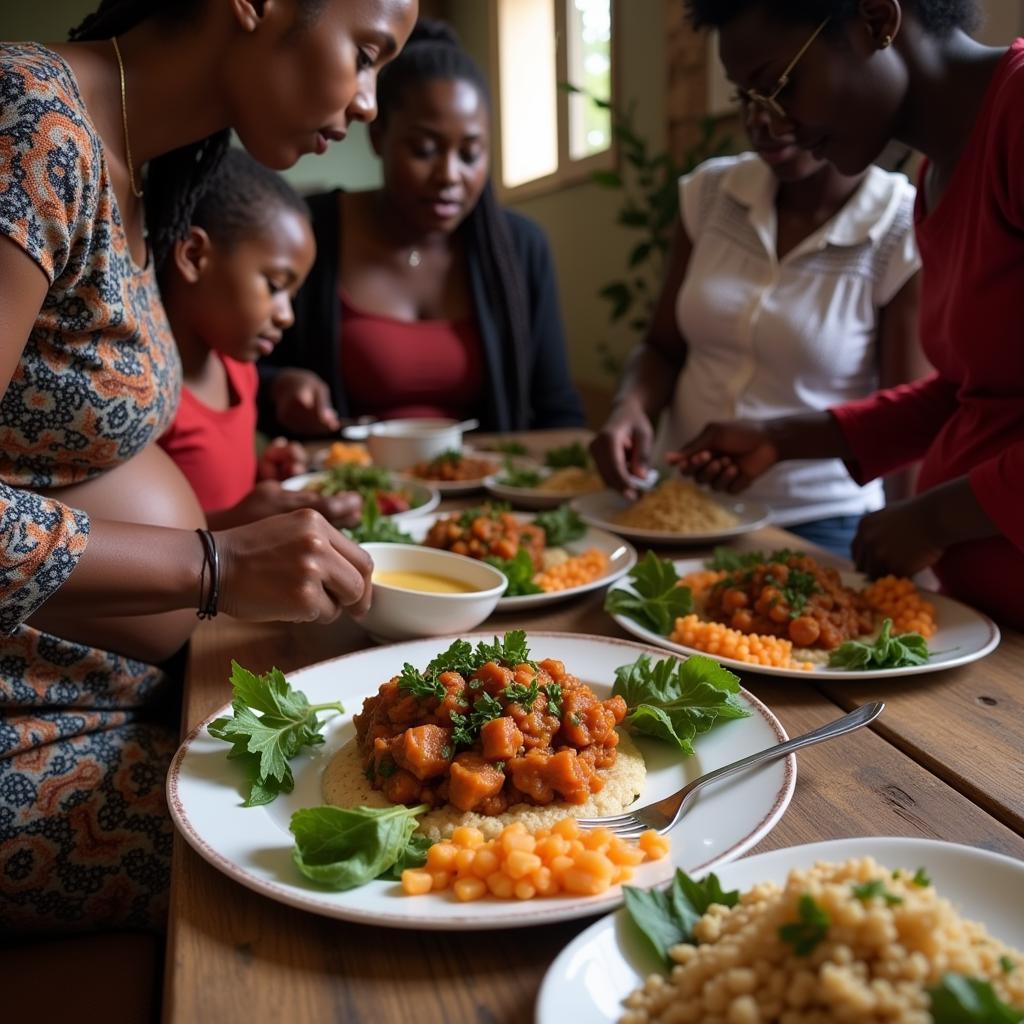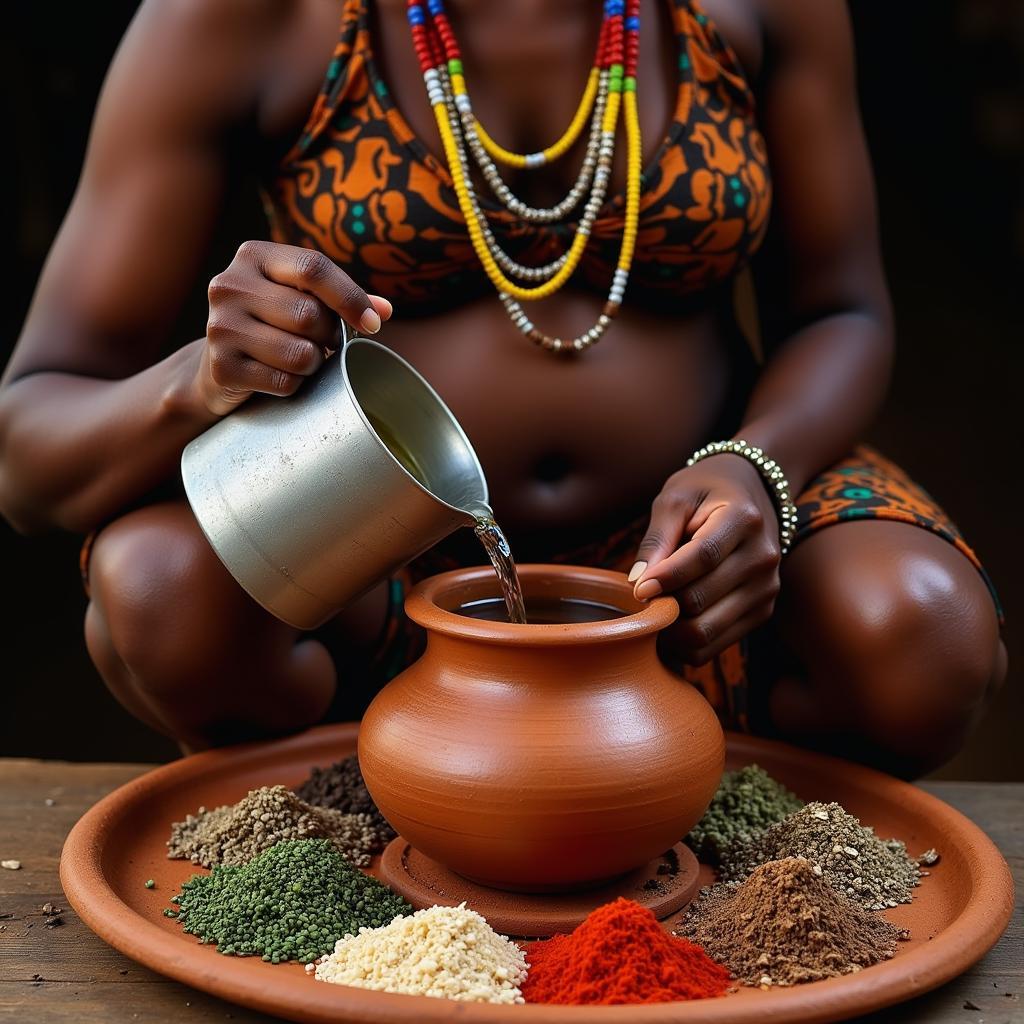Navigating Nutrition: The Importance of an African Diet During Pregnancy
A healthy pregnancy journey in many African cultures is intrinsically linked to diet. Expectant mothers are often guided by tradition and wisdom passed down through generations, focusing on nutrient-rich foods readily available in their local environment. Understanding the principles of an “African Diet During Pregnancy” goes beyond simply listing foods; it’s about appreciating the cultural significance and nutritional benefits woven into each ingredient.
Embracing Tradition: Staple Foods and Their Significance
Across the diverse landscape of Africa, staple foods form the foundation of a pregnant woman’s diet. These staples, while varying from region to region, are united in their ability to provide essential nutrients for both mother and baby.
- Grains: From hearty sorghum and millet porridges in the East to the ubiquitous fufu made from cassava or plantains in the West, grains provide energy-boosting carbohydrates, fiber for digestive health, and essential vitamins like B vitamins for cell growth and development.
- Legumes: Beans, lentils, and peanuts are not just affordable protein sources, but also rich in iron, crucial for preventing anemia during pregnancy. These legumes are often incorporated into stews, soups, or ground into pastes, adding flavor and substance to meals.
- Fruits and Vegetables: The vibrant markets across Africa are a testament to the abundance and variety of fresh produce. Leafy greens like amaranth and cassava leaves are rich in folic acid, vital for the baby’s neural tube development. Fruits like mangoes, oranges, and baobabs provide essential vitamins, minerals, and antioxidants.
 Pregnant Woman Eating Fruit at African Market
Pregnant Woman Eating Fruit at African Market
Beyond the Basics: Addressing Specific Nutritional Needs
While staples lay the groundwork, a healthy African diet during pregnancy also addresses specific nutritional needs:
- Iron: Iron deficiency is a common concern during pregnancy. Along with legumes, incorporating iron-rich foods like red meat (where available), dried fruits, and dark leafy greens becomes crucial.
- Calcium: Dairy consumption might not be traditional in some parts of Africa, but calcium remains vital for bone health. Including small fish with bones (like sardines), leafy greens like okra, and calcium-rich seeds like sesame seeds can bridge the gap.
- Protein: Adequate protein intake is crucial for the baby’s growth and development. Plant-based sources like beans and lentils, combined with occasional animal protein like fish, chicken, or beef, can ensure expecting mothers meet their protein requirements.
 Family Sharing a Traditional African Meal
Family Sharing a Traditional African Meal
Navigating Pregnancy Cravings and Aversions
Pregnancy in Africa, just like elsewhere, is marked by unique cravings and aversions. The key is to honor these changes while ensuring a balanced diet. Traditional wisdom often provides remedies:
- Morning Sickness: Ginger, a staple in many African cuisines, is known to soothe nausea. Ginger teas or simply adding ginger to meals can be helpful.
- Cravings: While indulging occasionally is fine, it’s essential to guide cravings towards healthier options. Opting for roasted plantains over fried snacks or choosing baobab fruit powder for a tangy, nutrient-rich treat are good strategies.
The Importance of Community Support
In many African cultures, pregnancy is seen as a communal journey. Mothers, aunts, and grandmothers often play a vital role in guiding expectant mothers’ diets, sharing traditional knowledge and providing practical support. This network of care ensures that pregnancy, especially the dietary aspect, is not navigated alone.
A Holistic Approach: Food as Medicine
 Preparing Traditional Herbal Tea During Pregnancy
Preparing Traditional Herbal Tea During Pregnancy
The African approach to pregnancy nutrition goes beyond just calories and nutrients; it encompasses a holistic view of well-being. Herbal teas, often incorporating ingredients like ginger, rooibos, or moringa, are believed to support digestion, boost immunity, and promote overall well-being during pregnancy.
Navigating an “African diet during pregnancy” is about embracing the diversity of food cultures across the continent, understanding the nutritional wisdom woven into traditional practices, and honoring the importance of community support during this special time.
